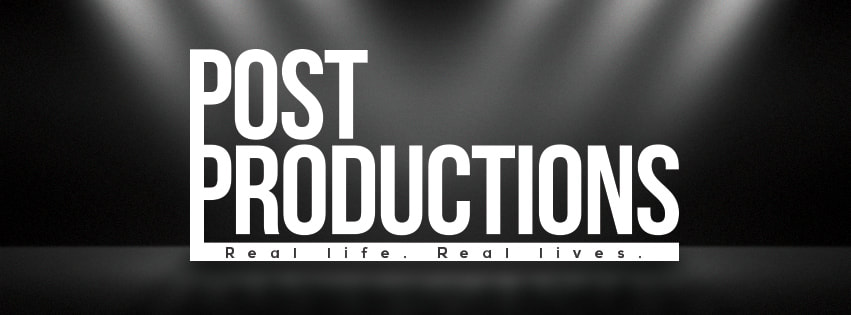 LEE (Dylan MacDonald) “What they don’t know is that each one of ‘em is afraid, see. Each one separately thinks he’s the only one that’s afraid.” Is Lee just an out-of-touch drifter and petty criminal, or is he something more? When we first meet him, we know him only in the broadest strokes, through the eyes of his brother, Austin: a bit of a hobo, someone who rejected the new west for the Old, living out on the desert, making occasional forays into suburbs to steal appliances. A drunk whose life, whose coiled, ready-to-pounce being, welcomes and accepts violence. He's cunning. But maybe not smart. In True West, Sam Shepard examines, among other themes, the “American Dream,” as played out in a far-flung suburb, 50 miles east of LA--the interstice between the Old West of the desert and the New West of Hollywood. The American Dream explored here is, of course, an illusion, or in the case of Austin and Lee, a delusion. While a younger Austin imagined Lee as a desperado, swashbuckling through adventures, Lee pictured Austin dashing through the quad of his Ivy League school, arms filled with books, chased by blondes. Both men had the same dreams about themselves. And found reality wanting. As the play opens we know immediately that Lee and Austin have been estranged for some time, that their relationship is complicated and broken. Lee resents Austin for being more conventionally successful, the younger brother who sold out to society’s expectations, who gave in to its demands to have a family and career. Austin reminds Lee of their mother, who he sees as shallow and inauthentic, a robot controlled by convention with no inner life of her own. But once Lee and Austin start talking to each other – really talking – we see there’s much more to Lee than we and Austin have assumed. Take the quotation above, from the story that’s been stirring inside Lee’s mind for God knows how long. To think of Lee in the terms we’ve used – criminal, drunk, drifter – is to think of him through the lens of the New West. But what if we think of Lee on his own terms, through the lens of the Old West? If we do that, Lee is a free spirit who has – to some degree consciously, to some degree unconsciously – rejected the norms and expectations of his mother, of the “civilized” world, and opted instead to follow his father’s path – with some trepidation and regret. The suburbs of his youth, and the apparent inauthenticity of his family, repulse him. But he’s also drawn, still, to the safety, security and acceptance that they represent. Yet Lee also envies Austin, who has managed to succeed on society’s terms and thus avoid the rejection that drove Lee away. There’s a security and comfort to Austin’s life that Lee wishes he could have. And Austin has managed to succeed, in some way, as an artist – even if he had to sell out to do so. Lee’s artistic impulses and ambitions, on the other hand, have led to failure, perhaps because he can’t adapt to the demands of commerce, because he’s unable to bring himself to sell out. And maybe because he doesn’t have Austin’s work ethic. Fundamentally, though, Lee’s Achilles heel is the same romanticism – the devotion to authenticity and freedom – that leads others find him so magnetic. His principles are entwined with his regrets. He’s a tragic figure, a comic figure and, most of all, a real human being. About DYLAN MACDONALD Dylan MacDonald is a local actor trained by The Second City (Toronto) as an improviser. Recent film and TV credits include Chase in Seek (Splice Productions), Ray Chapman in Curious and Unusual Deaths (Discovery Channel), Blane in Nara (Splice Productions), and Gerry in Leaving Town (Mimetic Productions). His favourite theatrical credits include Vince in Tape, Bassanio in Merchant of Venice, Bobby in American Buffalo, Lucentio in Taming of the Shrew and Spike in Vanya and Sonia and Masha and Spike. In addition to acting with various companies, and performing sketch comedy and improv, Dylan has recently ventured into teaching the art of acting by creating the company MacDonald Acting Studios in association with LAFA and Fusion Talent Agency. (Photo credit: Martin Ouellette of Churchwood Pictures, with Kieran Potter)
0 Comments
Leave a Reply. |
ARCHIVE
4/18/2024 - THE ANARCHIST - Interview by Marc Rocheleau for Windsorite.ca 4/15/2024 - REVIEW - The Anarchist by David Mamet 4/11/2024 - THE ANARCHIST - Article 4/2/2024 - THE ANARCHIST - Meet the Cast 3/20/2024 - The 2024 Edele Winnie Women's Monologue Competition - Meet the Judges 3/17/2024 - The 2024 Edele Winnie Women's Monologue Competition - Meet the Contestants 3/12/2024 - REVIEW - Vitals by Rosamund Small 3/1/2024 - 4.48 PSYCHOSIS & THE EVENT - Interview with playwright John Clancy 2/19/2024 - 4.48 PSYCHOSIS & THE EVENT - WindsoriteDOTca Interview 2/19/2024 - 4.48 PSYCHOSIS & THE EVENT - 519 Magazine Article 2/13/24 - 4.48 PSYCHOSIS & THE EVENT - Meet the Cast 12/12/2023 - FIRST NIGHT - Interview with playwright Jack Neary 12/5/2023 - Sketchy Jésus and the Questionables 11/2/2023 - THE CASE OF THE ODD SHAPED GAS TANKS - 519 Magazine article 11/2/2023 - REFRAMED - 519 Magazine article 10/14/2023 - HANGMEN - Windsorite article 9/21/2023 - HANGMEN - Meet the Cast 6/21/2023 - MIRABELLA - Trailer 6/6/2023 - MIRABELLA - Interview with playwright Joey Ouellette 6/2/2023 - MIRABELLA - Meet the Cast 4/2/2023 - GLENGARRY GLEN ROSS - Meet the Cast 3/7/2023 - The 2023 Edele Winnie Women's Monologue Competition - Meet the Judges 3/7/2023 - The 2023 Edele Winnie Women's Monologue Competition - Meet the Contestants 1/20/2023 - THE CHILDREN - Meet the Casts 11/25/22 - Pirate Attack on the 1C Bus Going Downtown - Interview with playwright Joey Ouellette 11/19/22 - Pirate Attack on the 1C Bus Going Downtown - Meet the Cast 10/25/2022 - Announcing the winner of THE 2022 WINDSOR-ESSEX PLAYWRITING CONTEST 9/28/2022 - STUCK - Interview with playwright Jonathan Tessier 9/14/2022 - STUCK - Meet the Creative Team / Cast 8/22/2022 - A GREAT ROUND WONDER - Interview with playwright Barry T. Brodie 8/9/2022 - A GREAT ROUND WONDER - Meet the Cast 6/5/2022 - PREPARED - Meet the Cast 5/31/2022 - PREPARED - Interview with playwright Kari Bentley-Quinn 4/19/2022 - Interview with playwright Edele Winnie 11/10/2021 - DEAD BEAR - Meet the Cast 11/5/2021 - DEAD BEAR: Interview with playwright John Gavey 9/12/2021 - BLASTED: Meet the Cast 7/2/2021 - CRIMINAL GENIUS: Meet the Cast 3/10/2021 - NEGATUNITY: interview with playwright Matthew St. Amand 3/10/2021 - NEGATUNITY: Meet the Cast 11/16/2020 - THE BEAUTY QUEEN OF LEENANE: Meet the Cast 10/5/2020 - FATBOY: interview with playwright John Clancy 7/16/2020 - Winner: 2020 Playwriting Contest 6/23/2020 - Announcement: Nikolas Prsa joins Post as Outreach Director 3/15/2020 - BETRAYAL - Meet the Cast 1/18/2020 - PRY IT FROM MY COLD DEAD HANDS: interview with playwright Edele Winnie 1/15/2020 - PRY IT FROM MY COLD DEAD HANDS: Meet the Cast/Crew 11/4/2019 - THE PILLOWMAN: Meet the Cast/Crew 9/18/2019 - AUTOPSY & A HAUNTING IN E FLAT: interview with playwrights Alex Monk & Joey Ouellette 8/29/2019 - AUTOPSY: Meet the Cast 8/29/2019 - A HAUNTING IN E FLAT: Meet the Cast 5/31/2019 - AMERICAN BUFFALO: Meet the Cast 3/31/2019 - NOTHING BUT THE TRUTH: Meet the Cast 3/19/2019 - NOTHING BUT THE TRUTH: interview with playwright Eve Lederman 2/25/2019 - So You're Writing a Play... 1/17/2019 - NO EXIT: Meet the Cast 11/22/2018 - ANOTHER FUCKING CHRISTMAS PLAY...: Meet the Cast & Composer 8/28/18 - EQUUS: Meet the Cast/Crew 7/15.2018 - SHELTER IN PLACE: Meet the Playwright 7/9/2018 - SHELTER IN PLACE: Meet the Cast 7/2/2018 - Writing to be Read 5/3/2018 - STOP KISS: Meet Fay Lynn as Callie 4/10/2018 - STOP KISS: Meet Lauren Crowley as Sara 4/27/2018 - STOP KISS: Meet Dan MacDonald as George 4/25/2018 - STOP KISS: Meet Matt Froese as Peter 4/21/2018 - STOP KISS: Meet Cindy Pastorius as Mrs. Winsley / Nurse 4/18/2018 - STOP KISS: Meet Alex Alejandria as Detective Cole 1/24/2018 - DOUBT: Meet Niki Richardson as Sister Aloysius 1/17/2018 - DOUBT: Meet Eric Branget as Father Flynn 1/10/2018 - DOUBT: Meet Carla Gyemi as Sister James 1/3/2018 - DOUBT: Meet Jennifer Cole as Mrs. Muller 10/2/2017 - TRUE WEST: Joey Wright as Austin 9/25/2017 - TRUE WEST: Dylan MacDonald as Lee 9/18/2017 - TRUE WEST: Ian Loft as Saul 9/11/2017 - TRUE WEST: Cindy Pastorius as Mom |
Copyright © 2017
